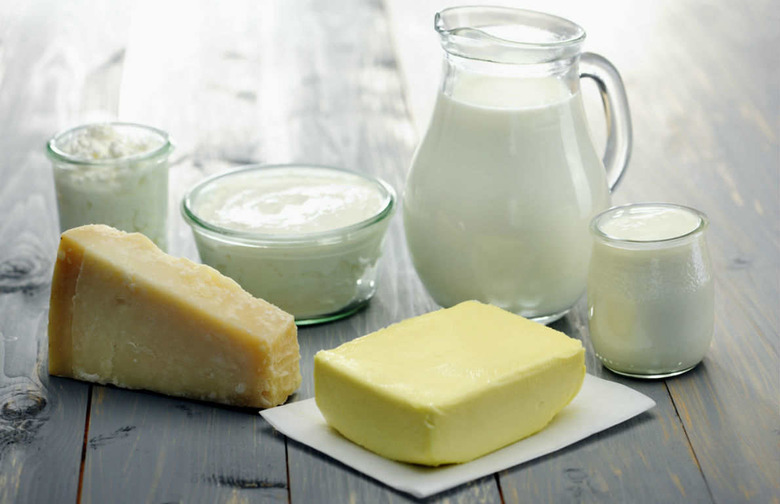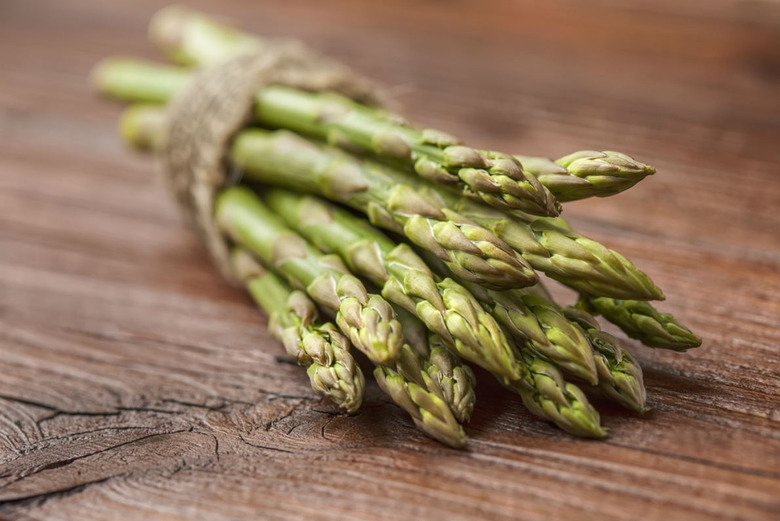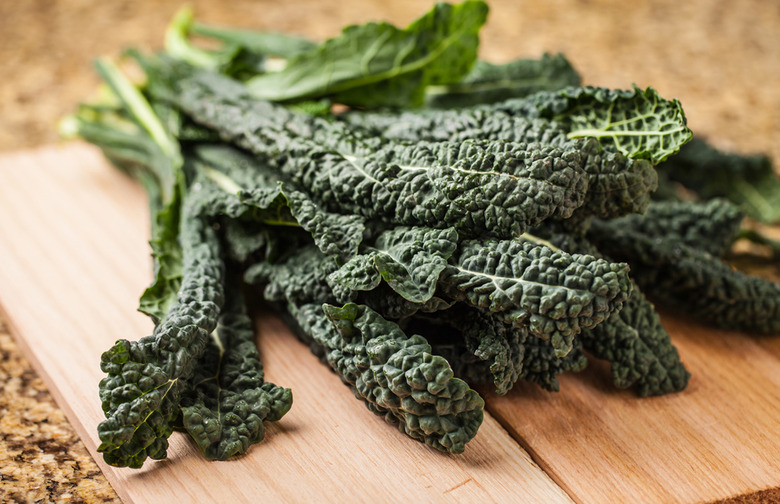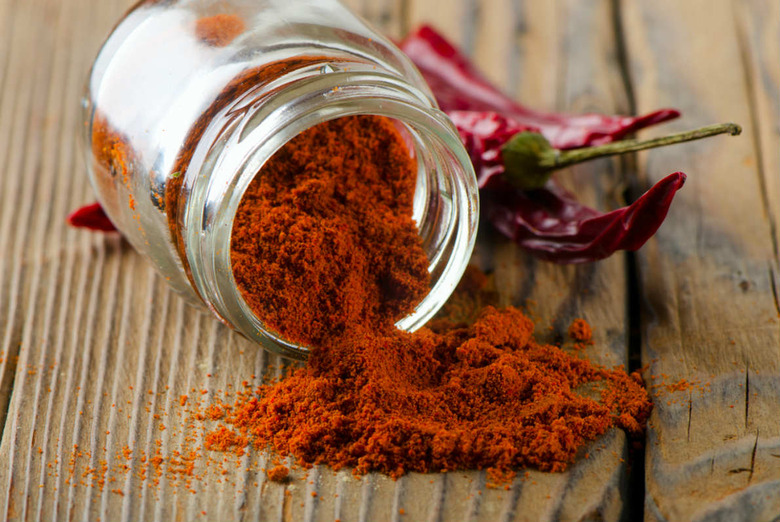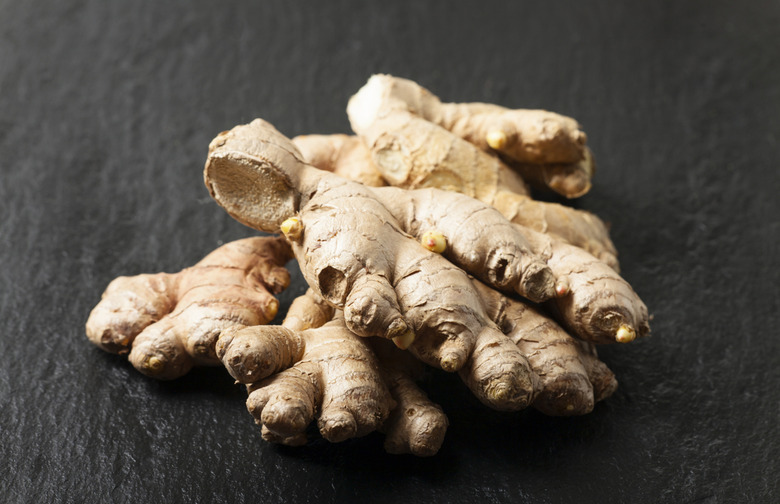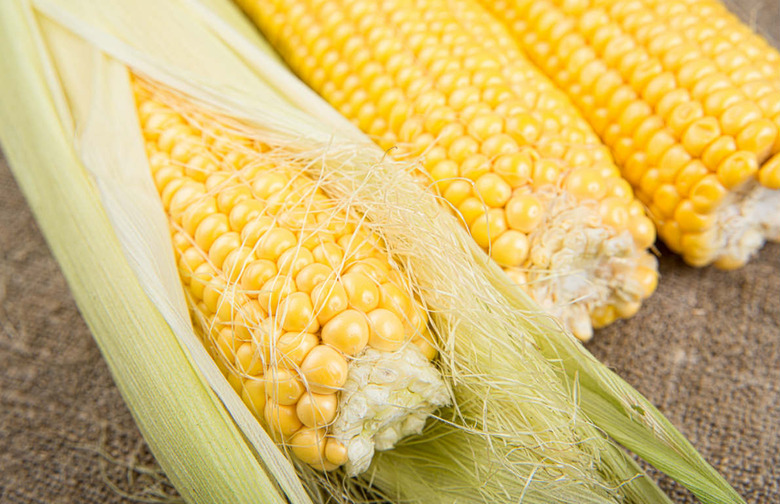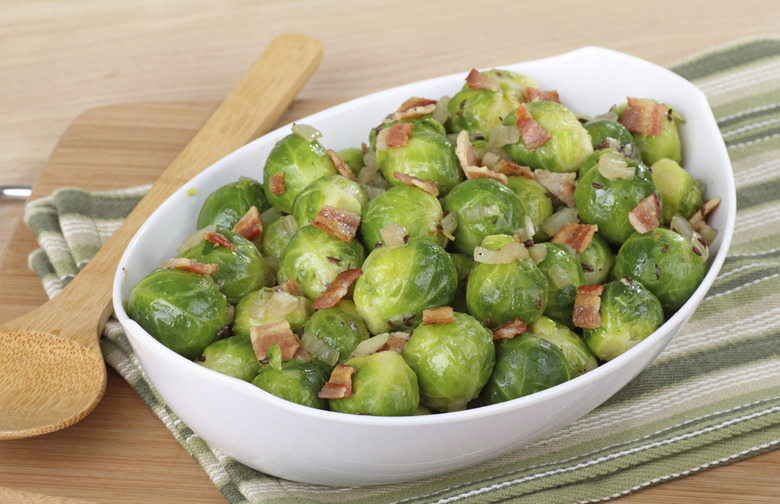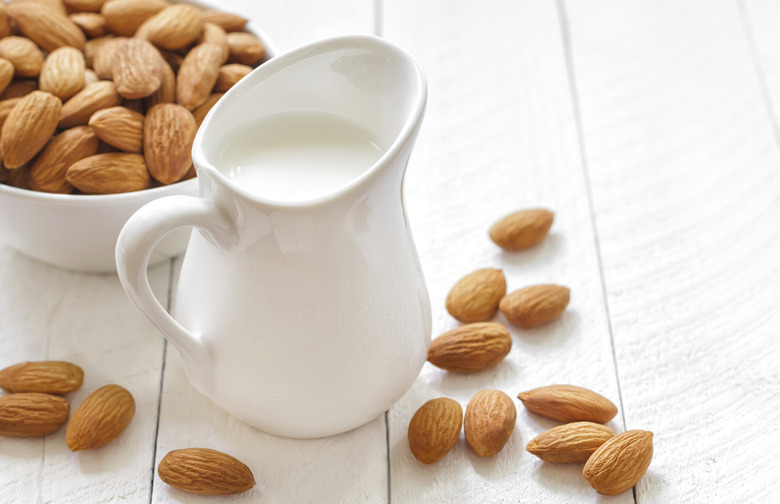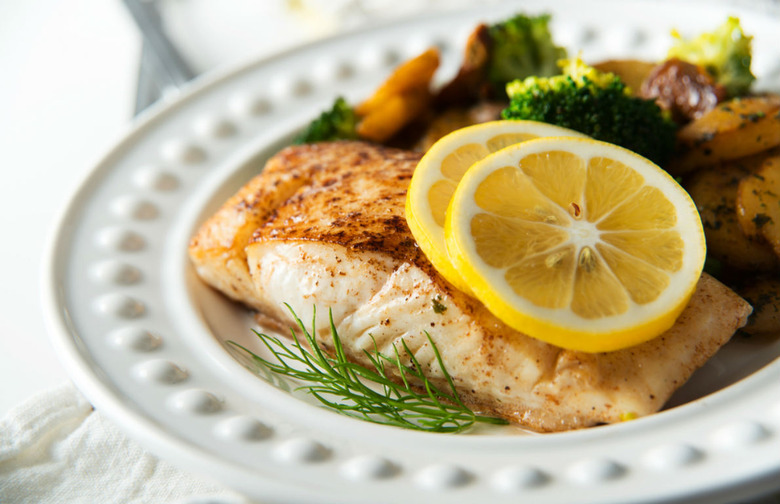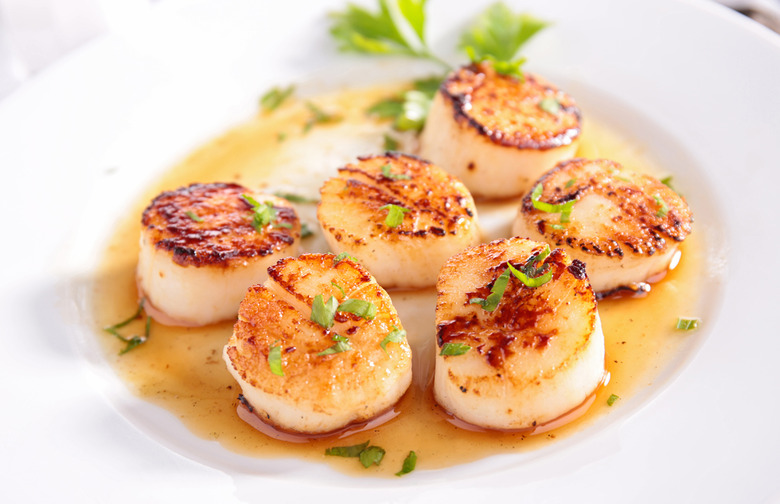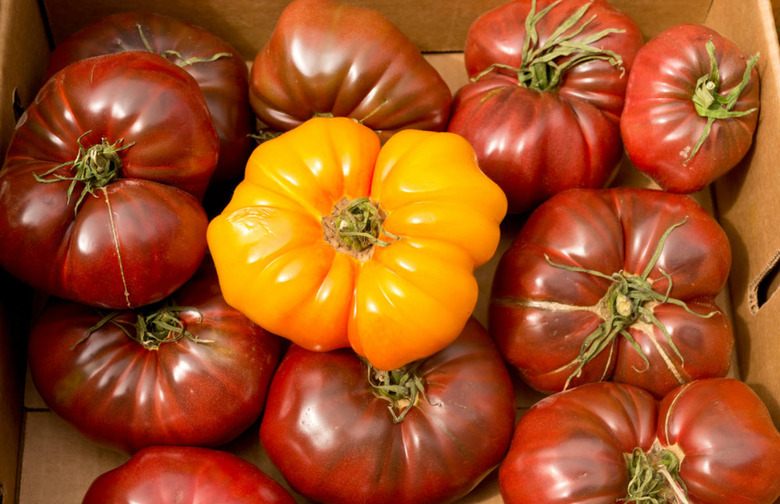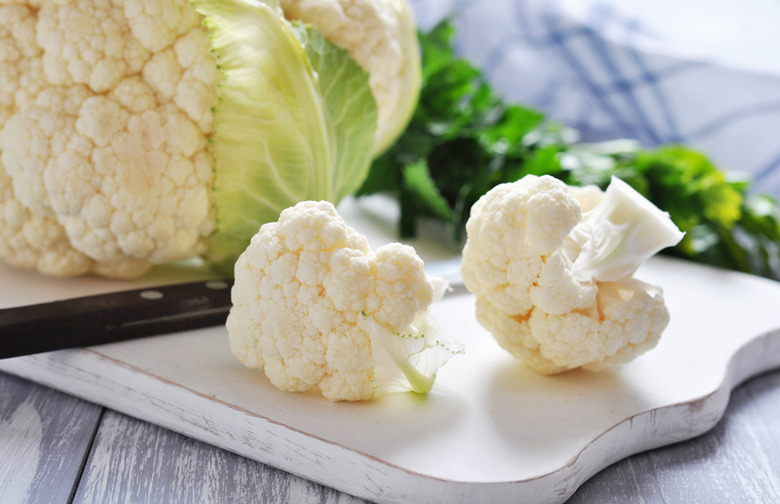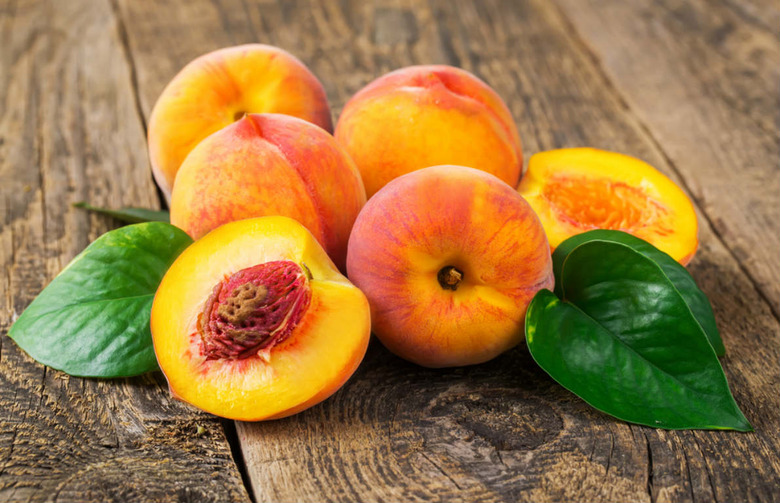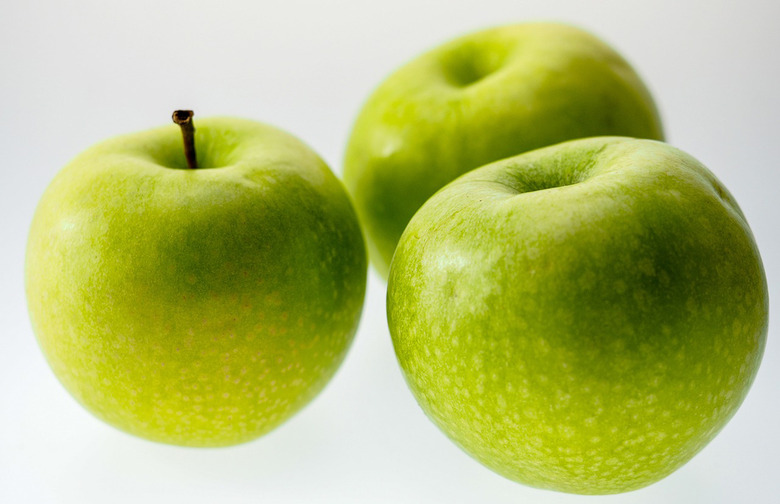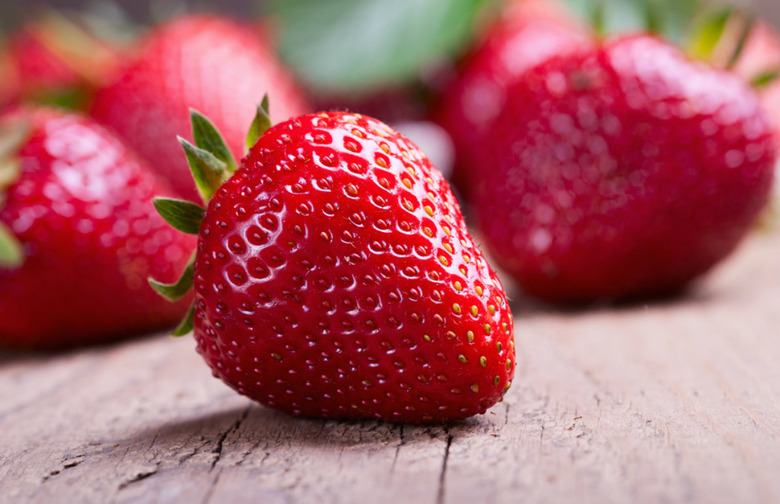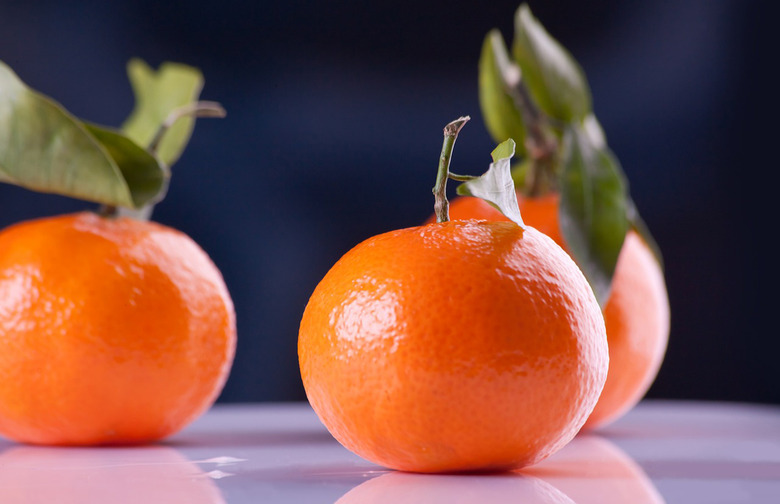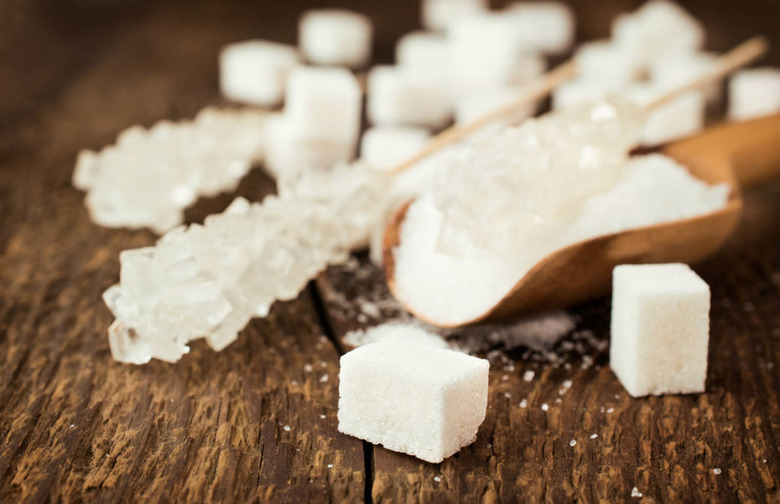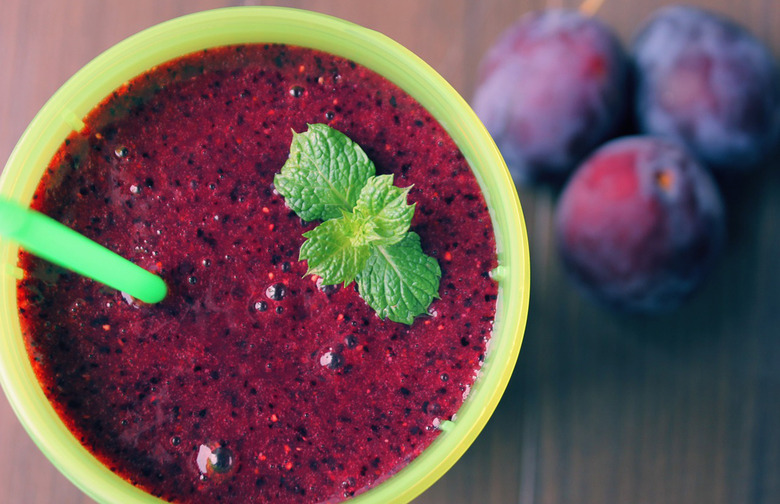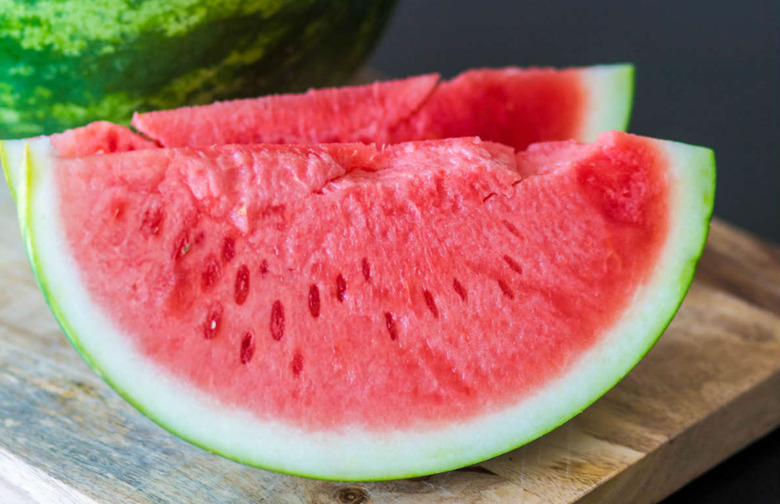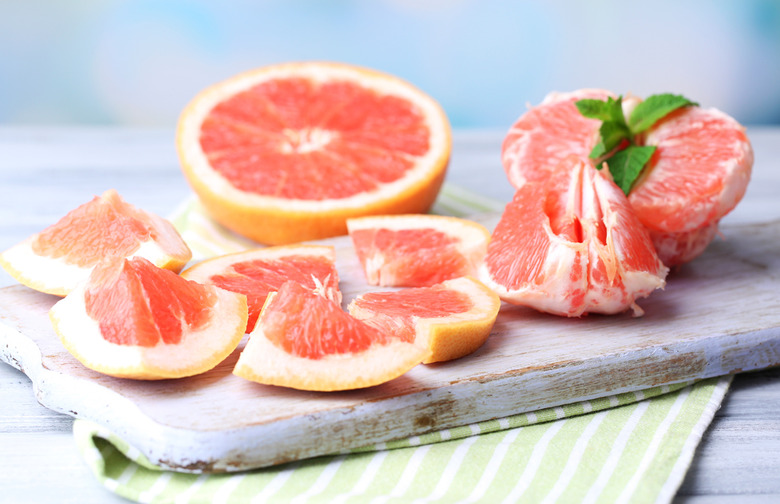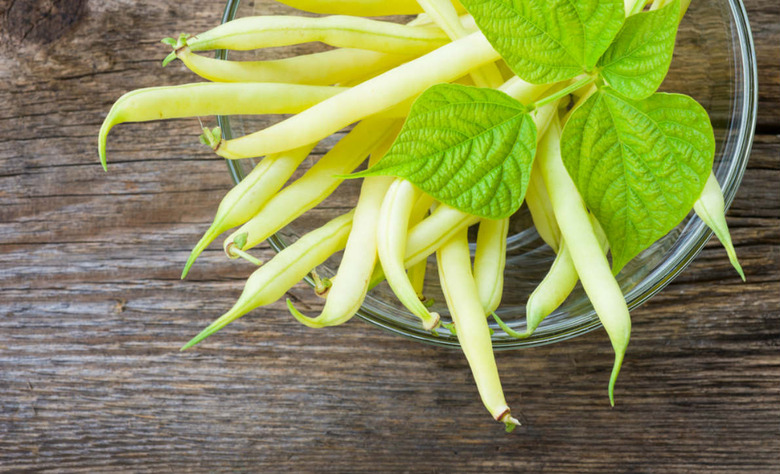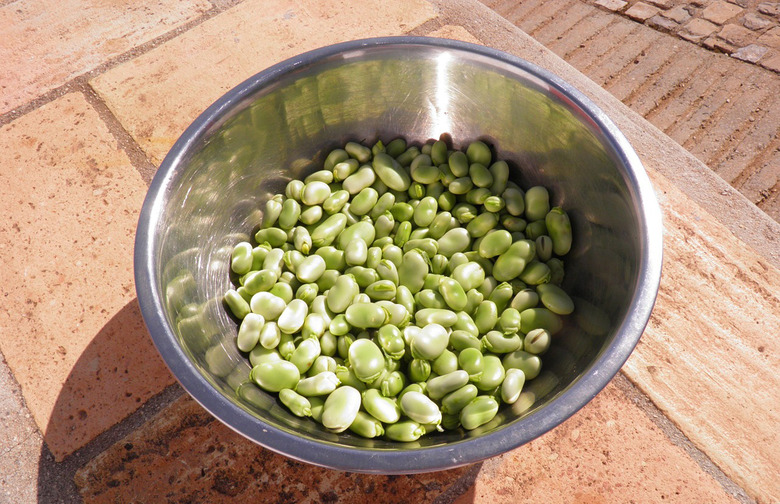Why You Shouldn't Eat These Foods In Winter
We've listed the top foods you should avoid during the winter months to give you a better idea of what to look for (and what to walk right past) in the grocery store. Click through our slideshow to benefit your health, wallet, and especially your taste buds.
Asparagus
Some foods are best left to the spring, and fresh asparagus is one of them, according to Suzanne Lehrer, culinary manager at Plated. "Anything light green in the store is special to spring," says Lehrer.
Try Kale Instead
"Pick up anything dark green instead for winter — kale, Swiss chard, and escarole," Suzanne Lehrer says. Kale is also filled with antioxidants to keep you from catching those awful winter colds. Try making warm kale chips or potato kale cakes to incorporate more kale into your diet!
Cayenne Pepper
Reaching for the spicy stuff might help clear your stuffy sinuses, but it will wreak havoc on your stomach. Avoid hot foods if you have a cold or the flu.
Try Ginger Instead
Ginger has been used as a medicinal root for hundreds of years in many Asian cultures. The natural root helps settle your stomach if you're feeling nauseous. Make warm ginger tea this winter for a healthy alternative.
Corn on the Cob
Unless you live in Florida, where it starts coming in by late January, that corn on the cob you find in the supermarket in mid-February won't be as young as you think. According to Jackie Keller, founder of Nutrifit, "This plant simply doesn't produce in winter months," says Keller. "What you'll be buying, if you do find it anywhere, will be frozen or even leftover from the previous season."
Try Brussel Sprouts Instead
As a winter vegetable, brussels sprouts are the perfect thing to replace your corn on the cob for a side dish. Make some honey roasted brussels sprouts or just pop them in the oven with some olive oil for a healthy snack.
Dairy
Milk, cream, and cheese can be your worst nightmare if you're fighting a bug. "If you feel you're on the cusp of a cold and feeling congested, dairy will only make it worse," says Lehrer.
Try Dairy-Free Alternatives Instead
OK, you might be wary of these alternatives at first, but they're actually delicious and don't stuff you up like dairy will. Try using almond milk instead of whole milk to dip Christmas cookies into or test out a cheese replacement, like Daiya cheese, for a pizza. You may be surprised how much you like these alternatives.
Halibut
Believe it or not, fish are seasonal, too. "Halibut is out of season in winter months," says Keller. "This doesn't apply to farmed fish, but I encourage people to buy wild when possible."
Try Scallops Instead
Sea scallops are available all year and make a healthy seafood dish. Plus, farm-raised sea scallops are incredibly abundant, making them a good seafood to purchase. Make a delicious dinner of pan-seared scallops this winter for sustainable, in-season seafood dish.
Heirloom Tomatoes
Again, unless you live in Florida, fresh tomatoes simply won't taste as good in the winter. "Heirloom tomatoes in Whole Foods look tempting, but they just won't be particularly sweet or juicy in February," says Lehrer. "Use canned San Marzano tomatoes for sauces and stews to get your tomato fix instead."
Try Cauliflower Instead
Replace your fresh tomato marinara sauce with a creamy cauliflower alfredo sauce. Cauliflower is a winter vegetable, so it'll be plentiful and beautiful this time of year.
Peaches
Frozen peaches are a better alternative to out-of-season fresh peaches. "Peaches don't travel well," says Keller. "They don't ripen once they're picked, and can be mealy and tasteless in the winter."
Try Apples Instead
A lot of apple varieties hit the shelves in the winter months. Replace your summer peach pie with a fantastic winter apple pie for a fresh, in-season treat.
Strawberries
Your winter strawberries will probably be a little mushy, since they've traveled a long way to reach you. "The flavor and texture will be subpar, as your produce will likely be coming from Mexico," says Lehrer.
Try Clementines Instead
We love our strawberries as much as you do, but biting into a tasteless, mushy berry isn't very appealing. Try snacking on a sweet clementine, which are in-season in winter, to still get those fruity flavors.
Sugar
Cold weather and hot chocolate go hand in hand, but many doctors believe that too much sugar can weaken your immune system. One study found subjects who had just consumed a lot of sugar weren't able to fight off bacteria as well as those who'd stuck to water.
Try Smoothies and Juices Instead
Natural sugars from fruits sweeten these drinks and are filled with great antioxidants. Use some good winter fruits and vegetables, like kale and bananas, for a natural smoothie.
Watermelon
Just because you can find winter watermelon, doesn't mean you should buy it. "While it may be available, it will likely have been shipped great distances and picked under-ripe," says Keller. "Skip it until summer."
Try Grapefruit Instead
A fresh tart, juicy grapefruit can be a great, filling breakfast for the winter months. It's in season, so it should be full of naturally sweet flavors.
Yellow Wax Beans
These beans can taste downright awful if you don't wait until the right moment. "If you find them in the winter at all, they'll certainly be fibrous, tough, and expensive," says Keller.
Try Fava Beans Instead
These little green beans are a great seasonal bean to cook in December. Cook them with artichokes for a dish full of seasonal-winter vegetables.
